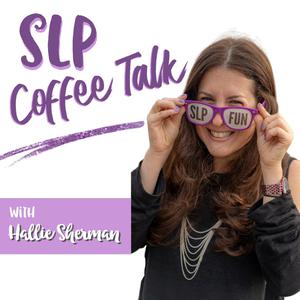
SLP Coffee Talk
Hallie Sherman
A speech and language podcast to motivate and inspire school-based SLPs. Just the tips, strategies, and low prep therapy ideas you need to walk into your therapy room with confidence and plan with ease. Learn and hear stories from an SLP in the trenches just like you!
- 18 minutes 40 secondsMotivating the Unmotivated: Tips for Engaging Reluctant Teens
Hallie chats about motivating the unmotivated student. She shares tips for engaging reluctant teens.
This week on SLP Coffee Talk, Hallie tackles a common challenge for SLPs working with older students—engaging reluctant teens in speech therapy. Drawing from her experience, she breaks down practical, compassionate strategies to turn crossed arms and silence into connection and growth. From building rapport and respecting boundaries to incorporating students’ interests and empowering them with choice, Hallie shares creative, low-prep ideas that make therapy fun and relevant. Tune in for tips that will transform resistance into enthusiasm, helping students stay motivated and making your sessions more rewarding and stress-free.
Bullet Points to Discuss:
- The reason behind the reluctance of older students.
- Strategies for building trust and rapport.
- Simple, creative therapy techniques that require minimal prep.
- Student-led goal setting and decision-making.
Here’s what we learned:
- Compassion and empathy helps foster better student engagement.
- Building rapport is a continuous process, going beyond the initial days.
- Relating speech therapy to students’ personal experiences and aspirations increases active involvement.
- Creative, relevant activities keep sessions engaging and dynamic.
- Allowing students to choose goals and activities increases participation.
- Highlighting strengths boosts confidence and reduces resistance.
Learn more about Hallie Sherman and SLP Elevate:
📝 Website: https://speechtimefun.com/
🎲✨ Check out the Secondary Secret Podcast here! https://www.speechtimefunpd.com/secret-podcast-signup
Subscribe today and get access to my secret podcast filled with my juicy secrets for planning with ease for secondary speech students. 6 quick episodes that you can quickly listen to and feel refreshed and inspired! https://speechtimefun.com/secondarysecrets
27 January 2025, 11:00 am - 42 minutes 44 secondsDLD vs Dyslexia or Both?!
Hallie chats with guest Britney Morrish about the intersection of DLD and Dyslexia, and the Quadrant Model for differential diagnosis.
In this episode of SLP Coffee Talk, Hallie sits down with Britney Morrish, a dedicated speech-language pathologist and founder of the Language and Literacy Clinic of Manitoba. Britney is passionate about using evidence-based practices to promote effective communication and literacy skills while advocating for equitable educational practices. Together, they explore literacy-based therapy for students with developmental language disorders (DLD) and dyslexia. Packed with actionable tips, this episode covers connecting therapy goals to the curriculum, understanding the overlap between DLD and dyslexia, and practical strategies for advocating for these students.
Bullet Points to Discuss:
-What is DLD?
-How prevalent is it?
-What is Dyslexia?
-The Quadrant model for differential diagnosis.
-How does it help us clarify overlapping diagnoses?
-Why SLPs are central to diagnosing and treating literacy-based disorders.
-Closing the DLD awareness gap - in professionals and the public.
Here’s what we learned:
- Why SLPs are uniquely positioned to address literacy challenges.
- Defining DLD and its impact on language comprehension and expression.
- Key differences and co-occurrences of DLD and dyslexia explained using the quadrant model.
- Challenges with current screening methods and potential improvements.
- The importance of vocabulary and syntax in therapy for older students.
- Strategies to raise awareness about DLD among educators and parents.
- Managing therapy for older students with multiple challenges.
- Utilizing high-interest materials to increase student engagement.
Learn more about Britney Morrish:www.languageliteracyclinicmb.ca
https://www.instagram.com/languageliteracyclinicmb/
https://www.languageliteracyclinicmb.ca/masterclasses
https://www.languageliteracyclinicmb.ca/products
Freebies/Offers:
https://www.languageliteracyclinicmb.ca/products
Learn more about Hallie Sherman and SLP Elevate:
📝 Website: https://speechtimefun.com/
🎲✨ Check out the Secondary Secret Podcast here! https://www.speechtimefunpd.com/secret-podcast-signup
Resources Mentioned:
On the “Specifics” of Specific Reading Disability and Specific Language Impairment by G. M. McArthur, J. H. Hogben, V. T. Edwards, S. M. Heath, E. D. MenglerSubscribe today and get access to my secret podcast filled with my juicy secrets for planning with ease for secondary speech students. 6 quick episodes that you can quickly listen to and feel refreshed and inspired! https://speechtimefun.com/secondarysecrets
20 January 2025, 11:00 am - 32 minutes 16 secondsEmpowering Your Middle School Students
Hallie talks with SLP Elevate member Bridget Karp about empowering middle school students and using SLP Elevate resources.
This week on SLP Coffee Talk, Hallie sits down with Bridget Karp, a passionate and experienced speech-language pathologist specializing in middle school therapy. Bridget has six years of expertise across various settings, including public and private schools and early intervention. She combines her knowledge with dedication in helping her students develop confidence and autonomy.
Bridget talks about how tools like SLP Elevate have streamlined her planning process, making sessions both fun and effective. She shares tips in keeping therapy engaging such as tailoring activities to students' interests, promoting self-advocacy, and incorporating playful methods. See how small choices and thoughtful planning can make a big difference for middle schoolers, making your sessions more impactful and stress-free!
Bullet Points to Discuss:
- Transitioning from elementary to middle school therapy.
- Building autonomy and confidence in older students.
- Balancing structured therapy with engaging, student-led activities.
- Time-saving planning techniques with SLP Elevate and similar tools.
- Overcoming challenges and fostering self-advocacy.
Here’s what we learned:
- Middle school students thrive when given autonomy and ownership in sessions.
- Simple, student-led activities like games can make therapy more effective.
- Tailoring content to student interests boosts engagement and progress.
- Tools like SLP Elevate save time and offer flexible, age-appropriate materials.
- Empowering students to advocate for themselves is critical at the middle school stage.
Learn more about Bridget Karp:
Instagram: https://www.instagram.com/bktheslp/
Learn more about Hallie Sherman and SLP Elevate:
📝 Website: https://speechtimefun.com/
🎲✨ Check out the Secondary Secret Podcast here! https://www.speechtimefunpd.com/secret-podcast-signup
Subscribe today and get access to my secret podcast filled with my juicy secrets for planning with ease for secondary speech students. 6 quick episodes that you can quickly listen to and feel refreshed and inspired! https://speechtimefun.com/secondarysecrets
13 January 2025, 11:00 am - 16 minutes 1 secondStart 2025 Strong With New Year's Themed Activities
Hallie discusses New Year's themed activities for therapy.
Happy New Year, SLPs! 🥳 It's time to shake off the holiday haze and dive into a brand-new year with fresh ideas and big dreams for your therapy sessions. In this episode of SLP Coffee Talk, Hallie brings the ultimate guide to planning engaging, New Year's-themed activities that will have your students saying, "This is why I come to speech!"
Discover quick, no-prep exercises, free resources like a fun YouTube video (hint: think New Year’s Eve tradition!), a summarizing card game, and a versatile digital comprehension activity for in-person or virtual sessions. Hallie also shares tips for using New Year’s resolutions to create personalized, motivating therapy plans.
Bullet Points to Discuss:
- The Power of New Year's Activities
- Goal Setting for Success
- Building Motivation
- Making Progress Effortless
Here’s what we learned:
- Fun, thematic ideas to re-engage your students after the break.
- How to align personal goals with therapy objectives.
- Hallie’s go-to tools for quick, low-prep sessions (find links in the show notes!).
- Tips to connect therapy skills to your students' real-world aspirations.
- A sneak peek into how SLP Elevate can transform your planning and outcomes.
Learn more about Hallie Sherman and SLP Elevate:📝 Website: https://speechtimefun.com/
🎲✨ Check out the Secondary Secret Podcast here! https://www.speechtimefunpd.com/secret-podcast-signup
Resources Mentioned:
Colossal Questions
WonderpolisSubscribe today and get access to my secret podcast filled with my juicy secrets for planning with ease for secondary speech students. 6 quick episodes that you can quickly listen to and feel refreshed and inspired! https://speechtimefun.com/secondarysecrets
6 January 2025, 11:00 am - 26 minutes 28 secondsReflecting on 2024
Hallie reflects on 2024.
SLPs, can you believe it? 2024 is in the rearview, and Hallie is kicking off the new year with an episode full of reflection, celebration, and a glimpse into what’s next for Speech Time Fun!
She highlights the triumphs of 2024, shares favorite moments, and showcases how her resources continue to inspire creativity in therapy. Plus, get a sneak peek at what’s coming in 2025—new resources, fresh therapy ideas, and more ways to save time while delivering impactful sessions.
Tune in to celebrate the past and embrace the possibilities ahead with Speech Time Fun! 🎉✨
Learn more about Hallie Sherman and SLP Elevate:
📝 Website: https://speechtimefun.com/
🎲✨ Check out the Secondary Secret Podcast here! https://www.speechtimefunpd.com/secret-podcast-signup
Subscribe today and get access to my secret podcast filled with my juicy secrets for planning with ease for secondary speech students. 6 quick episodes that you can quickly listen to and feel refreshed and inspired! https://speechtimefun.com/secondarysecrets
30 December 2024, 4:00 pm - 27 minutes 19 secondsReigniting the Spark as an SLP
After Speech Retreat, Hallie chats with SLP Elevate member and Speech Retreat attendee Elsha Young about reigniting the spark as an SLP.
In this episode of SLP Coffee Talk, Hallie sits down with Elsha Young, a Speech-Language Pathologist SLP Elevate member and Speech Retreat attendee to chat about reigniting that spark as an SLP. With 25 years of experience supporting communication across all stages of life, Elsha specializes in language, literacy, and assisting individuals with complex neuro-related communication challenges. From early intervention to private practice, schools, and hospitals, she’s now providing hybrid therapy services in Alaska, enjoying the opportunity to work with a diverse group of middle and high school students from various cultural, linguistic, neurological, and geographical backgrounds.
Bullet Points to Discuss:
- Challenges of a Large Caseload
- Finding Joy in the Work
- Innovative Therapy Approaches
- Adapting to Student Needs
- Balancing Structure and Flexibility
- Impact Beyond Traditional Metrics
Here’s what we learned:
- Challenges faced by speech-language pathologists (SLPs) working with older students.
- The impact of social media on professional expectations and self-perception.
- Career transitions and adapting to new roles in therapy services.
- Finding joy and passion in therapy despite challenges.
- Building rapport and meaningful relationships with students.
- Utilizing evidence-based materials to enhance student engagement and progress.
- Overwhelming amount of information and resources in the SLP community.
Learn more about Elsha Young:
Email: [email protected]Learn more about Hallie Sherman and SLP Elevate:
📝 Website: https://speechtimefun.com/🎲✨ Check out the Secondary Secret Podcast here! https://www.speechtimefunpd.com/secret-podcast-signup
Subscribe today and get access to my secret podcast filled with my juicy secrets for planning with ease for secondary speech students. 6 quick episodes that you can quickly listen to and feel refreshed and inspired! https://speechtimefun.com/secondarysecrets
23 December 2024, 11:00 am - 20 minutes 29 secondsBridging the Gap: How SLPs Can Empower Teachers
Bridging the Gap: How SLPs Can Empower Teachers to Support Students with Speech and Language Needs
In this another energizing episode of SLP Coffee Talk, Hallie dives into actionable strategies for collaborating with classroom teachers to better support your older speech students (grades 4–12). From recommending simple accommodations to fostering generalization of skills beyond the therapy room, this episode is your go-to guide for making classrooms more accessible and boosting student success. 💡 Ready to make an impact? Let’s do this, SLPs!
Bullet Points to Discuss:-Why Accommodations Matter
-Top Accommodation Tips for Teachers
-How to Communicate with Teachers
-Benefits of Classroom Accommodations
Here’s what we learned:
- Bridging the gap between speech therapy and the classroom.
- Advocating for students' needs and ensuring academic content accessibility.
- Extra processing time for students to absorb and respond.
- Using visual supports like graphic organizers (e.g., “Somebody Wanted But So Then” for summarizing).
- Allowing alternative ways to demonstrate knowledge (e.g., written reflections or recorded responses).
- Fostering independence by reducing future accommodation needs.
- Remember: You are not the customer. Your perspective differs from your students’.
Learn more about Hallie Sherman and SLP Elevate:📝 Website: https://speechtimefun.com/
🎲✨ Check out the Secondary Secret Podcast here! https://www.speechtimefunpd.com/secret-podcast-signup
Looking to level up but don’t want the hassle? I’ve got you covered!
💡 Here’s the deal:
Just send me a DM on Instagram with the word "GUIDE" and BOOM 💥—you’ll instantly get the link to my exclusive guide, completely FREE!Subscribe today and get access to my secret podcast filled with my juicy secrets for planning with ease for secondary speech students. 6 quick episodes that you can quickly listen to and feel refreshed and inspired! https://speechtimefun.com/secondarysecrets
16 December 2024, 11:00 am - 26 minutes 43 secondsLet's Chat Following Directions Goals
Hallie and Brittney Adler discuss creating language goals for following directions.
Grab your coffee and get cozy for an exciting episode of SLP Coffee Talk! This week, Hallie chats with the amazing Brittney Adler—a neurodiversity-affirming SLP who’s all about celebrating the unique ways neurodivergent kids communicate. Brittney works her magic with AAC, gestalt language processing, and sensory-based strategies to help kids with high support needs shine.
Together, Hallie and Brittney unpack the age-old “following directions” goals, shake up compliance-based practices, and share fun, practical ways to teach self-advocacy and independence. It’s an episode full of laughs, aha moments, and fresh takes to inspire your therapy sessions. Whether you’re a seasoned SLP or new to the field, this one’s for you!
Bullet Points to Discuss:- Compliance vs. comprehension in therapy
- The power of child-led therapy
- Self-advocacy and independence
- Moving beyond traditional "following directions"
Here’s what we learned:
- Breaking down the nuances of following directions: compliance vs. comprehension.
- The shift from compliance to teaching self-advocacy and independence.
- Why child-led therapy isn’t just effective—it’s a game changer for planning.
- Practical, everyday strategies to make speech goals relevant and functional.
- A fresh perspective on receptive language goals in school settings.
- Encouragement to follow your instincts and embrace neuroaffirming approaches.
Learn more about Brittney Adler:
Instagram: www.instagram.com/nycslpb
TikTok: https://www.tiktok.com/@nycslpb?_t=8r63oMxc3gc&_r=1Learn more about Hallie Sherman and SLP:
📝 Website: https://speechtimefun.com/
🎲✨ Check out the Secondary Secret Podcast here! https://www.speechtimefunpd.com/secret-podcast-signup
Subscribe today and get access to my secret podcast filled with my juicy secrets for planning with ease for secondary speech students. 6 quick episodes that you can quickly listen to and feel refreshed and inspired! https://speechtimefun.com/secondarysecrets
9 December 2024, 11:00 am - 34 minutes 55 secondsBe That Teacher (and SLP)
Building relationships, human-centered approach to teaching, unorthodox teaching methods, unapologetic authenticity, having fun and experiencing joy as an educator
On this episode of SLP Coffee Talk, Hallie welcomes educator and author Dwayne Reed to discuss the importance of building meaningful connections with students. Dwayne shares his unique journey into education, starting with his viral music video, Welcome to the 4th Grade, and highlights the transformative impact of being authentic in the classroom. He offers practical strategies for relationship-building, emphasizing the importance of meeting students where they are and treating them as individuals. Discover how Dwayne’s philosophy, outlined in his book Be THAT Teacher: Rehumanizing Education with Unapologetic Authenticity, can inspire educators and speech-language pathologists alike to foster trust, growth and joy in their work.
Bullet Points to Discuss:
- Why is authenticity so important in education?
- Everything good about life comes through humanity, not policy; how does this apply to education?
- What exactly does it mean to be THAT teacher and how can others do it?
- For those who say that, "Building relationships with students" is an empty platitude that administrators give their teachers, what's your response?
- What makes your book, Be THAT Teacher, special, noteworthy, or valuable to the every day teacher or administrator, and why should anyone purchase it?
Here’s what we learned:
- Building trust with students starts with authenticity and connection.
- Treating students as individuals, not data points, fosters respect and engagement.
- Small gestures, like remembering details about a student, can have a big impact.
- Creating a supportive, human-centered classroom culture leads to long-term success.
- Encouraging students to embrace their uniqueness builds confidence and self-worth.
- Holding students accountable with grace and understanding strengthens relationships.
Learn more about Dwayne Reed
Website: tmreed.com
Instagram: @teachmrreed
Book: Be That Teacher by Dwayne ReedLearn more about Hallie Sherman and SLP:
📝 Website: https://speechtimefun.com/
🎲✨ Check out the Secondary Secret Podcast here! https://www.speechtimefunpd.com/secret-podcast-signup
Subscribe today and get access to my secret podcast filled with my juicy secrets for planning with ease for secondary speech students. 6 quick episodes that you can quickly listen to and feel refreshed and inspired! https://speechtimefun.com/secondarysecrets
2 December 2024, 11:00 am - 25 minutes 25 secondsHelping High School Students Transition to the Workforce
Hallie talks about helping high school students transition into the workforce and how it relates to speech therapy.
In this episode of SLP Coffee Talk, Hallie dives into supporting high school speech and language students as they transition from school to the workforce. As SLPs, we play a vital role in preparing our students for real-world communication demands—from interviewing skills and professional etiquette to problem-solving and self-advocacy. Hallie shares actionable strategies to integrate job-readiness skills into therapy sessions, making learning relevant and impactful. Tune in to discover role-playing activities, helpful resources, and tools to empower your students for success beyond the classroom. Perfect for SLPs working with older students eager to prepare for the future!
Bullet Points to Discuss:- The Role of SLPs in Transition Planning
- Adapting Therapy Goals to Workplace Skills
- Using Role-Playing for Real-World Practice
- Building Strong Written Communication
- Generalizing Skills Beyond the Classroom
- Resources & Tools for Workforce Readiness
Here’s what we learned:
- IEP integration and the role of SLPs in workforce readiness.
- Personalizing expressive/receptive language and social pragmatics to include job-specific scenarios.
- Developing self-advocacy and problem-solving skills through simulated job scenarios.
- Helping students craft resumes, job applications, and emails.
- Teaching email etiquette and formal language in professional contexts.
- Ideas for bringing therapy out of the “speech closet” and into real-world settings.
Learn more about Hallie Sherman and SLP:
📝 Website: https://speechtimefun.com/
🎲✨ Check out the Secondary Secret Podcast here! https://www.speechtimefunpd.com/secret-podcast-signup
Subscribe today and get access to my secret podcast filled with my juicy secrets for planning with ease for secondary speech students. 6 quick episodes that you can quickly listen to and feel refreshed and inspired! https://speechtimefun.com/secondarysecrets
25 November 2024, 11:00 am - 20 minutes 39 secondsGive Them A Say
Hallie discusses giving your students a say in what they do in speech therapy.
On this episode of SLP Coffee Talk, Hallie Sherman explores the importance of giving older speech students a SAY in their sessions. Sharing personal insights and strategies from her career, Hallie explains how empowering students can lead to a more engaging and motivating learning environment. From offering flexible seating and allowing students to choose their learning tools to discussing individualized goals, she provides practical tips that make a real difference. Tune in to learn how small changes can foster student collaboration and trust, creating a more positive experience for both students and SLPs.Bullet Points to Discuss:
- Benefits of Giving Students a Say
- Practical Ways to Empower Students
- Encouraging Ownership of Learning
- Creating a Comfortable and Collaborative Environment
- Long-Term Impact
Here’s what we learned:
- Small autonomy boosts student confidence and willingness to participate.
- Empowering students makes sessions feel less like “work” and more collaborative.
- Customizing session reminders helps students take ownership of attendance.
- Offering choice reinforces respect for students’ preferences and independence.
- Simple adjustments can reduce classroom resistance and build rapport.
Learn more about Hallie Sherman and SLP:
📝 Website: https://speechtimefun.com/
🎲✨ Check out the Secondary Secret Podcast here! https://www.speechtimefunpd.com/secret-podcast-signup
Subscribe today and get access to my secret podcast filled with my juicy secrets for planning with ease for secondary speech students. 6 quick episodes that you can quickly listen to and feel refreshed and inspired! https://speechtimefun.com/secondarysecrets
18 November 2024, 11:00 am - More Episodes? Get the App
Your feedback is valuable to us. Should you encounter any bugs, glitches, lack of functionality or other problems, please email us on [email protected] or join Moon.FM Telegram Group where you can talk directly to the dev team who are happy to answer any queries.
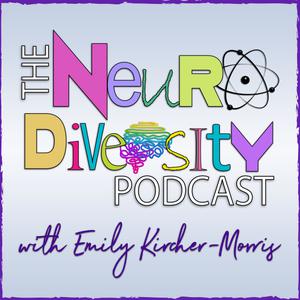 Neurodiversity Podcast
Neurodiversity Podcast
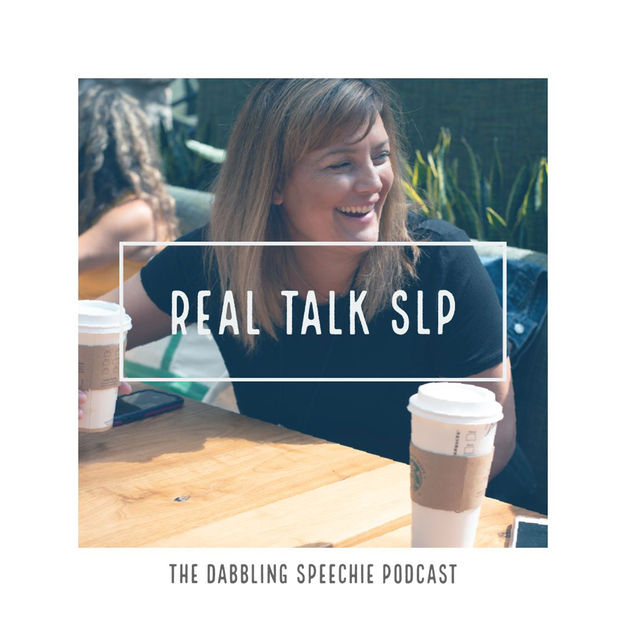 Real Talk SLP
Real Talk SLP
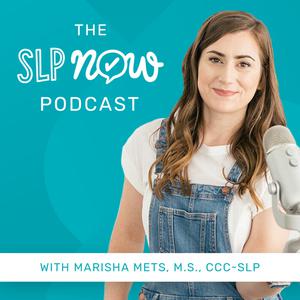 The SLP Now Podcast
The SLP Now Podcast
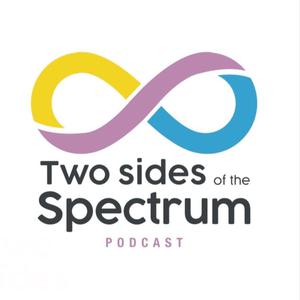 Two Sides of the Spectrum
Two Sides of the Spectrum
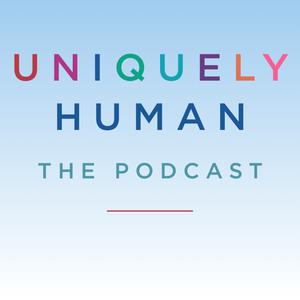 Uniquely Human: The Podcast
Uniquely Human: The Podcast
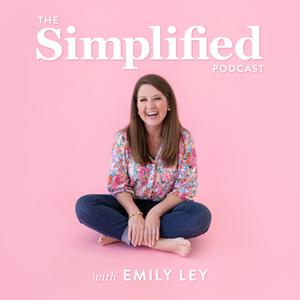 The Simplified Podcast with Emily Ley
The Simplified Podcast with Emily Ley